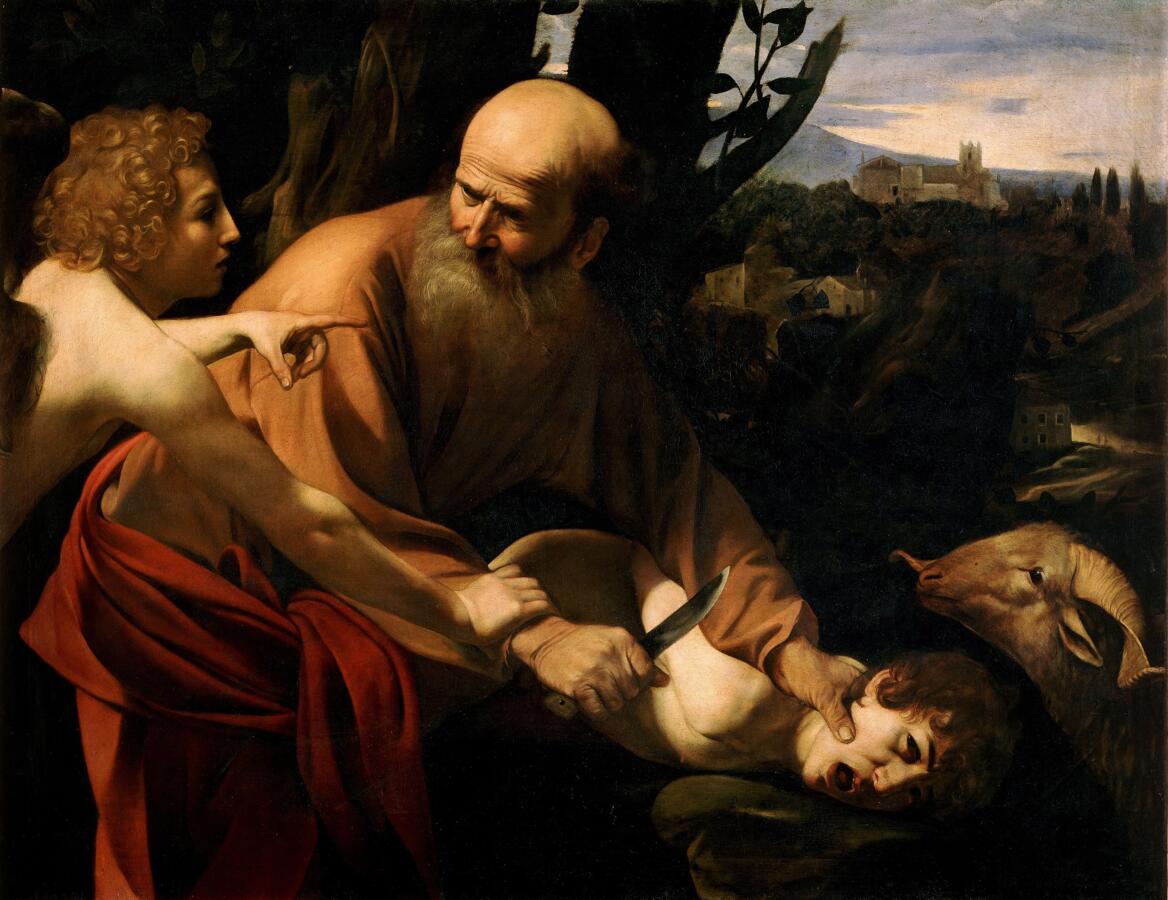The Akedah, or “binding of Isaac” is the portion that most people relate with . Though Isaac is the one being bound, the story is referred to as a test of Abraham. Reference to this story appears throughout the Rosh Hashanah liturgy. Even the (ram’s horn) blown on the holiday is said to be a reminder of the Akedah, and how Isaac was spared. Though the story itself is quite troubling, it does contain a message of hope for Rosh Hashanah. In the liturgy we ask God to “remember us for life.” The binding of Isaac concludes with his life being spared, and he too is “remembered for life.” Abraham’s devotion results in hope for life.
It should be noted that while this is the traditional reading for the second day of Rosh Hashanah, in the Reform tradition most congregations read this portion (through Genesis 22:18) on the first day of the holiday. This English translation is reprinted with permission from Tanakh: The Holy Scriptures published by the Jewish Publication Society.
22:1. Some time afterward, God put Abraham to the test. He said to him, “Abraham,” and he answered, “Here I am.”
22:2. And He said, “Take your son, your favored one, Isaac, whom you love, and go to the land of Moriah, and offer him there as a burnt offering on one of the heights which I will point out to you.”

Help us keep Jewish knowledge accessible to millions of people around the world.
Your donation to My Jewish Learning fuels endless journeys of Jewish discovery. With your help, My Jewish Learning can continue to provide nonstop opportunities for learning, connection and growth.
22:3. So early next morning, Abraham saddled his ass and took with him two of his servants and his son Isaac. He split the wood for the burnt offering, and he set out for the place of which God had told him.
22:4. On the third day Abraham looked up and saw the place from afar.
22:5. Then Abraham said to his servants, “You stay here with the ass. The boy and I will go up there; we will worship and we will return to you.”
22:6. Abraham took the wood for the burnt offering and put it on his son Isaac. He himself took the firestone and the knife; and the two walked off together.
22:7. Then Isaac said to his father Abraham, “Father!” And he answered, “Yes, my son.” And he said, “Here are the firestone and the wood; but where is the sheep for the burnt offering?”
22:8. And Abraham said, “God will see to the sheep for His burnt offering, my son.” And the two of them walked on together.
22:9. They arrived at the place of which God had told him. Abraham built an altar there; he laid out the wood; he bound his son Isaac; he laid him on the altar, on top of the wood.
22:10. And Abraham picked up the knife to slay his son.
22:11. Then an angel of the LORD called to him from heaven: “Abraham! Abraham!” And he answered, “Here I am.”
22:12. And he said, “Do not raise your hand against the boy, or do anything to him. For now I know that you fear God, since you have not withheld your son, your favored one, from Me.”
22:13. When Abraham looked up, his eye fell upon a ram, caught in the thicket by its horns. So Abraham went and took the ram and offered it up as a burnt offering in place of his son.
22:14. And Abraham named that site Adonai-yireh, whence the present saying, “On the mount of the LORD there is vision.”
22:15. The angel of the LORD called to Abraham a second time from heaven,
22:16. and said, “By Myself I swear, the LORD declares: because you have done this and have not withheld your son, your favored one,
22:17. I will bestow My blessing upon you and make your descendants as numerous as the stars of heaven and the sands on the seashore; and your descendants shall seize the gates of their foes.
22:18. All the nations of the earth shall bless themselves by your descendants, because you have obeyed My command.”
22:19. Abraham then returned to his servants, and they departed together for Beer- sheba; and Abraham stayed in Beer-sheba.
22:20. Some time later, Abraham was told, “Milcah too has borne children to your brother Nahor:
22:21. Uz the first-born, and Buz his brother, and Kemuel the father of Aram;
22:22. and Chesed, Hazo, Pildash, Jidlaph, and Bethuel”-
22:23. Bethuel being the father of Re- bekah. These eight Milcah bore to Nahor, Abraham’s brother.
22:24. And his concubine, whose name was Reumah, also bore children: Tebah, Gaham, Tahash and Maacah.



